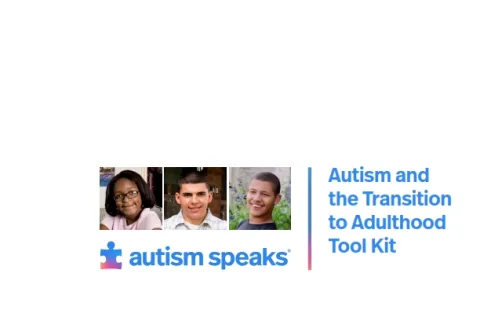Accommodations on the Job
Employment Tool Kit
A majority of employees with autism require some type of accommodation in their employment. Some of those accommodations are easy and inexpensive to implement, while other accommodations require a more thoughtful plan. This section of the Employment Tool Kit offers information on different types of accommodations that may apply to you or others. It is also important to note that oftentimes in employment the job responsibilities can change according to the needs of the business.
Accommodations are often needed not only to get the job but to keep the job, as those tasks and possible supervisors can change.
Universal Design for Accommodations
Universal Design is defined as, “the design of products and environments to be usable by all people, to the greatest extent possible, without the need for adaptation or specialized design.” – Center for Universal Design, NC State University Employers who participated in the Autism Speaks Employment Think Tank in June 2012 agreed that neurotypical employees (people without neurological disabilities) also benefit from the supports put in place for their co-workers with autism. Visual reminders, simplified job descriptions, and “traveling” interviews – where job candidates observe employees performing the job for which they are being considered – are useful for all company employees. Frequently, productivity can be increased for all employees with these universal accommodations.
Job Accommodation Network (JAN)
In order to understand all your options for a job accommodation, it is important to speak to someone with experience in understanding and applying accommodations. JAN provides free, confidential technical assistance about job accommodations and the Americans with Disabilities Act (ADA). Their website also outlines some accommodation suggestions for individuals with ASD. Click here to learn more.
Natural Supports
Natural supports are strategies that workers and managers use on a regular basis with all of their colleagues in the workplace, regardless of whether or not they have a disability. We have heard from many individuals with ASD that you wish to be treated just like anybody else – and of course we agree. Natural supports in the workplace are more sustainable and cost-effective than more formal interventions such as job coaches, and often benefit all employees. Some business leaders who participated in the Autism Speaks Employment Think Tank expressed interest in the idea of using the “manager as job coach,” making clear that supporting employees with ASD like you should specifically be part of a manager’s responsibilities. This also helps phase out the job coach, who is best used as a temporary accommodation during times of transition or only when you need them.
Technology
Personal digital assistants (PDAs) – smartphones, iPod touches, iPad and Android tablets, among others – offer task management and organizational features that may be utilized to help you function more successfully in the workplace. Additionally, onboard video cameras and add-on software applications provide rich opportunities for the implementation of personalized vocational supports designed just for you. At this writing, more than 600,000 applications are available for Apple mobile devices and nearly as many are available for Android and Microsoft mobile products. Workers with ASD who have been trained to use Apple iPod touch PDAs as vocational supports in the workplace have seen improved performance and reduced behavioral challenges.
For more information on how technology can help you in the workplace, visit these online articles and resources:
- VCU Rehabilitation Research & Training Center
- Autism Speaks Technology Resources
- iPad ™ Success Stories
Useful Accommodations You Can Ask For
Below is a quick overview of some job accommodations that have been useful for employees with ASD.
Exhibiting Acceptable Workplace Social Skills:
- Look for mentors that always model acceptable social skills.
- Use a job coach to help you understand different social signs and cues.
- Review or ask your job coach to review with you conduct policies to understand what is unacceptable behavior.
- Use role-play scenarios with your job coach or trusted friend to demonstrate acceptable behavior in workplaces.
Interacting with Coworkers:
- Look for a mentor to help you learn how to interact with co-workers.
- Minimize personal conversation, or move personal conversation away from work areas.
- Ask for a job accommodation that is an alternative form of communication if needed between you and your co-workers, such as email, instant messaging, or text messaging rather than conversational.
Communicating Effectively with Supervisors:
- Ask for day-to-day guidance and feedback.
- Ask for clear expectations and the consequences of not meeting expectations.
- Ask to establish long term and short-term goals.
- Ask for assigning of priority of tasks.
- Ask for assignment of projects in a systematic and predictable manner.
Communicating in the Workplace:
- Ask for advanced notice of meetings, particularly when you may be required to provide information at the meeting.
- Ask if you can provide a written response in lieu of verbal response.
- Ask for advanced notice of meeting topics, particularly when you are required to participate verbally.
- If you need support, ask to bring an advocate to any performance review or disciplinary meetings.
Read more in the Autism Speaks Employment Tool Kit.








